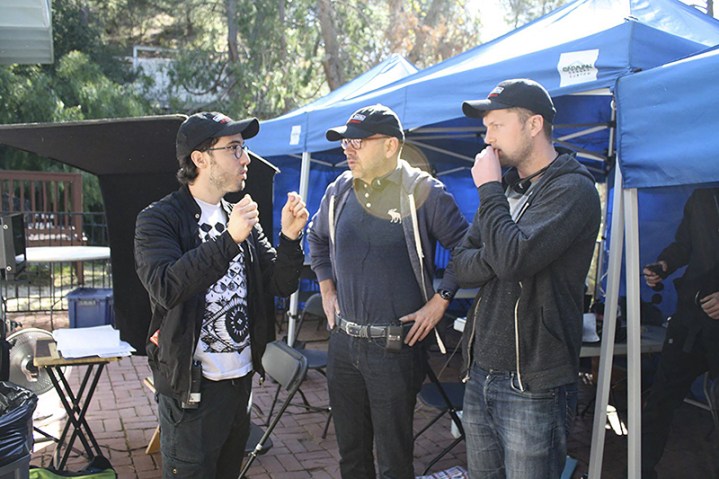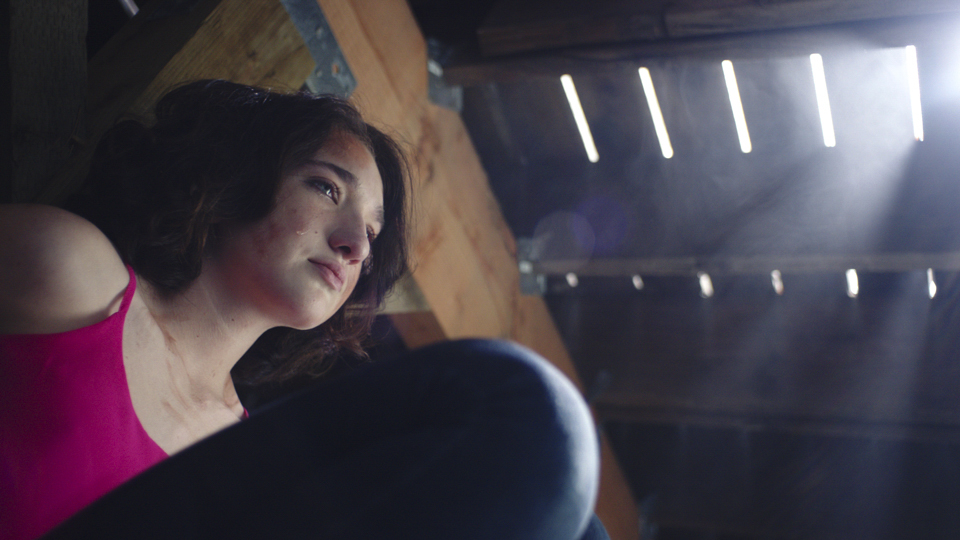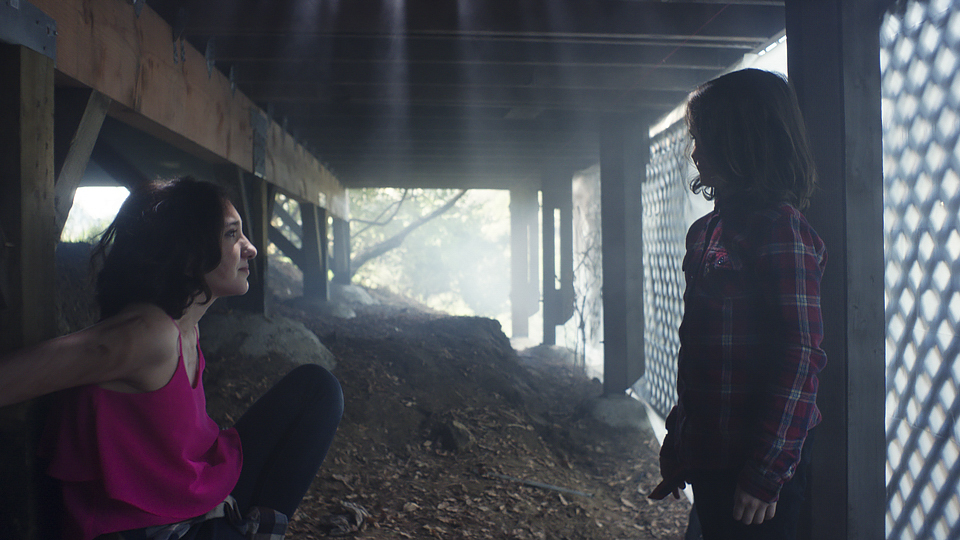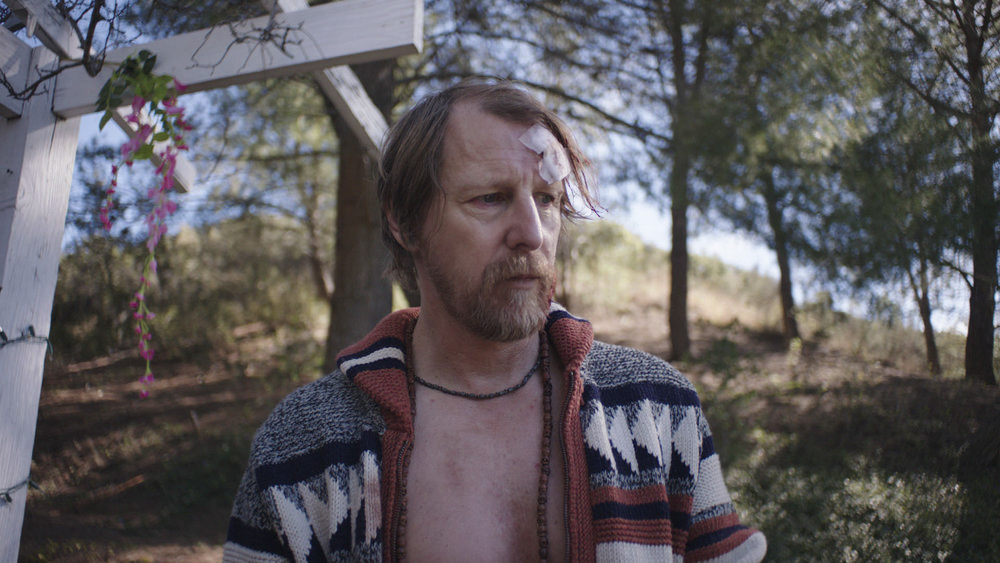
Your Instagram or Facebook feed is likely already full of film commercials, sponsored ads, and original content from major media brands, cropped and curated to fit the platform. So forget billboards and trailers, and forget Hollywood and Madison Avenue: The next generation of media companies will be built to take advantage of that fact — and will mesh movies and ads and branded content into one stream of great stuff you’ll want to watch and share.
Meet Miller/Datri Entertainment, a brand-new independent film studio and content creation company built on that principal … and the bevy of relationships co-founders Colby Reed Miller and James Edmund Datri have accumulated over their careers.
“What if branded content looked as good as feature-length films and was made by the movie studio?”
Miller made Forbes’ 30 under 30 list this year for his marketing and advertising work at AOL/Oath, including partnerships with Refinery29, NBC Universal, and Condé Nast. Datri is a former partner at one of the entertainment industry’s most prominent law firms (Manatt, Phelps & Phillips), and former executive director of the Democratic Caucus in the U.S. House of Representatives. He’s also president and CEO of the American Advertising Federation (AAF).
The pair just launched Miller/Datri Entertainment to put a new spin on New Media and rethink how advertising, film, social media, and branded content intersect. They aim to upend years of entrenched ideology, just as modern social media influencers are disrupting the traditional news media and full-stack video houses like HBO and Netflix are disrupting traditional content creation and distribution models.
They’re about to launch their first feature film, a horror movie called “Come, Said the Night.” The premise: Thirteen-year-old Sprout Grady, in the midst of coming-of-age, and on vacation with her family to their secluded retreat in the forest to mark the anniversary of her sister’s death, grows convinced that a monster is haunting the nearby woods. Embarking on a mission to vanquish it, she uncovers horrifying secrets that rock the core of everything she thought she knew.
While writing and producing the movie, they’ve been asking the most timely questions: What if branded content looked as good as feature-length films? What if it relied on movie stars and musicians or *gasp* social media stars rather than nobodies, and was made by the same movie studio? What if we wanted to watch and share ads on social media, rather than skip by them on the TV?
Digital Trends recently sat down with Colby and Miller to discuss the new film, the new company, the changing media landscape, and how former opera singers and media moguls plan to rethink a multi-billion dollar industry.
Digital Trends: Your company is touted as a new media company. That used to mean “online” as opposed to print, film, or radio — but you’re a new kind of new media, right?
Colby Miller: What Jim and I are very conscious of, having spent a lot of time in our careers in advertising and also both having been very big fans of film, is the fact that film and advertising and media are all converging — and the company we’re building sits at the intersection of all of those things.
We think that we’re really positioning this company to take advantage of that, and to capitalize on that trend and ride it in a way that’s going to benefit our customers and our partners. A couple other things that make our company unique is, while we are movie studio first, we are producing branded content. We are producing short-form video content.
James Datri: This started as a passion project because we’re movie buffs. We wanted to make movies. We shot our first film in Los Angeles starring Lew Temple from The Walking Dead and Daniel Harris of the Halloween films. We did that as our first feature film. As we were doing that and watching this creation happen we started thinking about bringing the motion picture quality that we were creating with a movie to branded content, and at a great cost.
“It’s about what’s in the content, who is the talent, and how is it going to be shot.”
All of the work we’ve done in media, entertainment, and advertising, and working with great brands, helped us come to movie-making with a lot of ins already. We leveraged those ins in every way to get great quality production and great quality talent, at a very, very good price, because we don’t have a lot of overhead, so we don’t have a huge operation.
This is me and Colby putting this together. We don’t have the kind of overhead that a traditional studio has, so we’re able to bring that quality at an exceedingly good price. That’s that combination, where we’re able to bring motion picture feature film quality with top level folks from the industry to branded content.
You’ve worked with major media companies such as Condé Nast and NBC Universal. Have knowledge and contacts from those experiences helped with this company?
CM: I think one thing is an incredible set of relationships. I’ve learned a tremendous amount from all the customers and partners that I’ve had a chance to work with — literally the best media companies and content creators in the world. I think the other thing that was tremendously valuable, and it’s actually the reason I went to go work at Oath, then AOL at the time, is that Oath sits at a very interesting spot in the digital media advertising ecosystem.
I got to see a lot of the challenges, opportunities, strategies that the best companies in the world like those you mentioned, whether it’s broadcasters or magazine companies or digital-first publications, were going after, and I got to help them put together those strategies and implement those strategies. Getting that access to the whole ecosystem was incredibly valuable. Jim and I’ve really taken a lot of those learnings to benefit our company and also our customers and our partners.
Social media is a big part of your new distribution model. How do you guys create different content for different social channels?
CM: You’ll hear people talk a lot about the right length for the right platform or right channel. One of the things that Jim and I talk about with our customers and partners that makes us really different: We’re not only thinking on that kind of basic level.
We’re bringing a level of creativity and understanding of content and how audiences respond to content that is unique to an award-winning motion picture studio and every piece of content that we create … it’s not just about the length or the format. It’s about what’s in the content, who is the talent, and how is it going to be shot. That’s something that makes us really different, and that’s why we talk about it.
How important are social influencers to that distribution model? Who have you worked with?
CM: Our whole distribution philosophy is about flexibility. One of the big challenges that brands face today in branded content is they often might be forced into using a distribution strategy or reaching a certain audience that could be great, but it’s not flexible enough. It doesn’t meet their full range of needs.
We leverage every part of our network just like we do for branded content for our clients.
Our distribution strategy looks at all of the different channels that a brand might want to use to reach their audience. So social influencers are one of those pieces. We don’t think it’s the only piece, we don’t think it’s an insignificant piece, it’s just one of the pieces that should be part of that puzzle. So I think the key message there is that it’s all about flexibility.
We have worked with and can work with everyone from Hollywood stars down to a fashion influencer who has a thousand followers. Ultimately it’s all about what is the content, what is the brand’s goal, and who is the influence that’s right for that for that activation.
Are you willing to share any of the stories though campaigns you got dealing with certain influences?
CM: Lew Temple has been an awesome influencer, actually, for promotion for one of our own films. That’s been everything from Twitter to Instagram stories to taking over our feed.

There’s a couple other influencers that we have in the works. One is an extreme-sports female influencer. Another is a fashion-focused influencer. Those are just a few examples.
In terms of financing, were there any DIY hacks you used to make and distribute these films? Anything other other aspiring companies could use?
CM: We utilize our connections, and we’ve leveraged those connections to finance our our film. Part of the way we were able to do a full-length feature film as a first-time producer is leveraging our network. Part of that’s financing, part of that’s crew. Part of that is production. We leverage every part of our network just like we do for branded content for our clients. We bring that to our motion pictures.
Did the films come before the bigger parent entertainment company or vice versa?
We have ambitious goals for this company. Colby and I don’t do anything less than 350 percent.
CM: Films came first. As we were making the feature film, we enjoyed it so much we thought we could build this into something broader that encompasses other forms of media, advertising, branded content, social media. So that grew from the films, which grew from our passion about film. I think Jim and I also looked at what do we know best. Where do our relationships lie, which is really in the advertising, media space.
I noticed Soundcloud links on your site to songs that’ll be in your new film. Do you also handle soundtracks?
JD: We did in fact hire a composer. It is an original soundtrack that was written specifically for the film. We’re hands-on producers. We’re not just fundraisers. We had a hand in every part of this process to the extent that we’re heavily involved in that soundtrack.
CM: Jim and I were very involved with tonality of what you’re hearing there and instruments used.
JD: I’m a trained musician and I sang with the San Francisco Opera company when I was growing up. I have a musical background as well — and we’re bringing all of that, all of our background experiences, we’re bringing to this business. Music is certainly one of them.
Do you have plans to use your new media tactics in music? Is that another area to rethink?
CM: Jim and I believe that there are synergies in all different parts of the entertainment industry. Whether it’s film, or branded content, or music, or sports, or music. We’ve had a couple opportunities come to us through friends where we’ve actually had the opportunity to invest in and help manage two music groups. One is a rap group. The other is a DJ.
First of all, we think that this is going to benefit our film business, our production, our digital business, and also benefit our partners and customers in that area. We also think that there is potential down the road for creating an entirely different business line in and of itself around management, around investment. That’s something we’re exploring. We’re in active talks with a number of different entities, musical groups, agencies, artists, and media companies to that extent. More to come on that is all I would say.
Where do you see this company in five years? What are some milestones you hope to hit?
JD: We have ambitious goals for this company. Colby and I don’t do anything less than 350 percent. Anybody who knows us knows that. So our goals for this company are very ambitious. We are building a multi-platform, multimedia company that will be engaged in film, branded content, television, music and the synergies between all of them.










